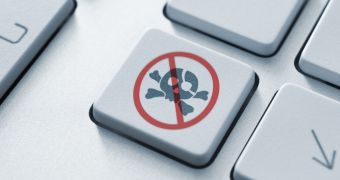Piracy remains a major issue for Microsoft across the world, especially because the company wants more users to purchase legitimate copies of its Windows operating system.
Microsoft Armenia Country Manager Grigor Barseghyan said during a press conference that the local subsidiary of the software giant managed to cut piracy from 98 percent in 2006 to 87 percent this year.
“Clearly, we cannot be satisfied with current situation in the intellectual property sector, with the problem being crucial not only in the context of the Microsoft activity, but the country’s development as a whole. Without receiving protection, the best specialists in the country are leaving abroad where their intellectual rights will be better protected,” Barseghyan was quoted as saying by PanArmenian.
Microsoft’s official has also pointed out that the software company is not the only one losing money due to piracy, but also the local authorities. At the same time, security and technical issues remain a main concern for everyone involved in this side of the industry, he said.
Redmond is also warning via its official website that pirated software often comes with malware, which means that users’ computers and files are exposed to cybercriminals across the Internet.
“More than 40% of the remaining counterfeit disks installed contained additional programs or binaries with known vulnerabilities,” Microsoft claims, citing a recent study aimed at emphasizing the risks of using pirated software.
What’s more, a study conducted by IDC revealed that 37 percent of the businesses that purchased software in the last year didn’t know that they actually bought counterfeit applications which included malware and other malicious files.
Of course, the purpose is to encourage all users to buy licensed software, be it Windows, Office, or any other product, in order to benefit from full support and an original experience without getting computers infected with malware.

 14 DAY TRIAL //
14 DAY TRIAL //